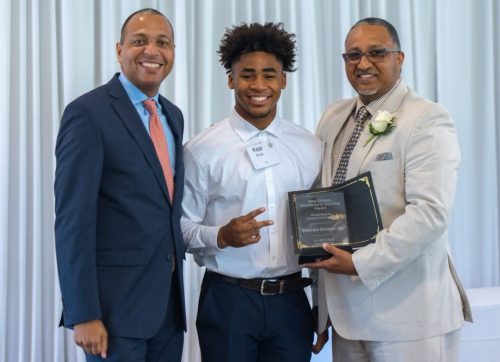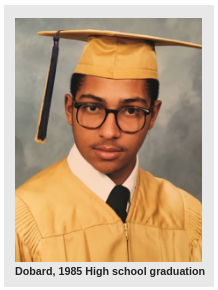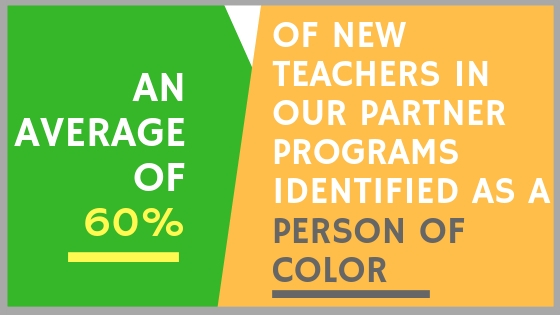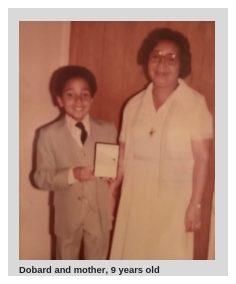Teachers are the strongest threads in the fabric of any city. If we want our children to have the education they deserve, we must recruit the best educators from within and outside of New Orleans. We face an urgent need for it: 900 of our teachers leave the classroom annually. We must work to fill the gap they leave behind, ensure teachers feel valued, and clear the way so they can stay in the classroom. At New Schools for New Orleans, we are committed to solving this problem.
I know how important teachers are. My own life has been powerfully shaped by great teachers in New Orleans. Three excellent educators from my life allowed me to dream bigger than I ever thought possible. They gave me examples of greatness and helped me develop that excellence within myself. When I eventually became a teacher, I worked to give that gift to my students. 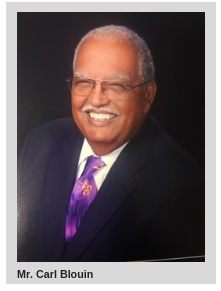
Mr. Carl Blouin was one of those great teachers. He taught me trigonometry my senior year in high school. I had always struggled in math and over the years, I was too ashamed to ask for the help I needed. I was intimidated by Mr. Blouin–he had a reputation for being incredibly rigorous–but I respected him. He was an assistant band director, and I was a drum major, so we had a connection outside of the classroom. I felt he knew me as a person, and while I struggled mightily with the material in his class, I knew he believed in me.
He went above and beyond, staying after class and coming before school to tutor me and other students who needed help. With his support, I made progress and passed trigonometry. More importantly, my belief in myself changed. When I went to college the next year, I no longer thought of myself as a student who was weak in math. In fact, I excelled in college math–my entire experience had changed because of Mr. Blouin.
Mr. Eric Richard was an English teacher who changed my life. “Coach Rich,” as we called him, exposed my classmates and me to black literature. He had us purchase Black Voices, an anthology of black writers. I had never read anything like it; it struck a chord in me, and to this day, I still pull that book off of the shelf to reference black authors. Coach Rich also introduced us to novels that captured our imagination. He got us so engaged in these books that I recall sitting in the school yard with my classmates, talking about the latest chapters like they were action movies.
I had excellent teachers in college as well. In college, I had a professor named Dr. Blanche Zink. She was the first teacher who told me I could compete academically with students from anywhere in the country, and she pushed me to get there. She was also a model for me as an educator — Dr. Zink showed me how to differentiate instruction to give each student what we needed, allowing us each to grow. When she noticed I was moving quickly through the classwork, she gave me independent assignments to push myself further. Eventually, she pushed me to do a Master’s program and I owe her that part of my academic trajectory. I am incredibly grateful for where it has led me today.
NSNO is taking concrete steps to find more teachers like Mr. Blouin, Mr. Richard, and Dr. Zink. The city needs to fill hundreds of open roles each year. We are tackling this head on by supporting the recruitment of both new and experienced teachers. We believe we can help fill nearly a third of the openings through a partnership for new teacher recruitment and development. NSNO has joined forces with Xavier University of Louisiana on a federal SEED (Supporting Effective Educator Development) grant. This grant works to fund strong teacher preparation programs that focus on recruiting candidates of color who have ties to New Orleans through a unique and innovative partnership including two local programs of higher education and three national non-profits. Xavier University is well-positioned to lead collaborative work with partners as a local HBCU with a highly-regarded education program and deep expertise in diverse recruitment strategies and culturally responsive teaching and learning.
The SEED grant brings together Xavier, Teach For America (TFA), TeachNOLA, Relay Graduate School of Education, and Loyola University. Across these organizations, we will recruit and retain 285 diverse new teachers in New Orleans each year. The grant supports the recruitment and development of these new teachers and puts a special focus on ensuring their training is grounded in culturally competent practices.
Additionally, in partnership with the Orleans Parish School Board, we are creating a website to connect both new and experienced teachers with open roles. Teachers need to be able to seek out jobs with a simple web search. We will build an online landing page for prospective teachers that will go live in December. The website will provide information about New Orleans education, highlight public schools, host job opportunities, provide links to different teacher pathways, and allow candidates to “drop” their resumes.
Our goal is to match half the city’s need across these initiatives, but this leaves future work to be done. We know recruitment alone will not solve our problem. We want teachers to feel valued and see a long-term career in teaching therefore, we will be collecting data in order to implement concrete retention strategies in the Spring of 2019.
We will continue to stand up for policies that will help our current educators and encourage new ones to join the field. Recently, Governor John Bel Edwards announced a proposal to increase teacher salaries statewide. In the upcoming Spring 2019 legislative session, we will support legislation and policies that bring additional dollars to educators.
As we go forward, I am hopeful for the future of New Orleans’ teaching force, and our ability to recruit excellent new educators. The diversity of our incoming teachers, in particular, leaves me inspired. Currently 60% of the teachers in our partners’ programs are people of color. We welcome great teachers of all races, while also recognizing the unique role that teachers of color play in the lives of public school students in our city. It was important for me, for instance, that Mr. Blouin and Mr. Richard were both black men. I could see myself in them, and in so doing, imagine a future for myself that looked like theirs. When I chose to become a teacher myself, it was in their footsteps.
There is a young teacher in training right now who is somebody’s Mr. Blouin. There is a teacher working in Texas who is eager to move back home to New Orleans. They could be somebody’s Dr. Zink. Somebody’s future Mr. Richard is a student in one of our New Orleans universities right now. These future New Orleans teachers need to find their place in our public schools. We need to welcome them into our classrooms.
There’s no time to waste; our children are in classrooms today, waiting to learn from the leaders we have yet to recruit. They are waiting to explore, engage, and invent with these teachers. They are waiting to grow and create by their sides.
